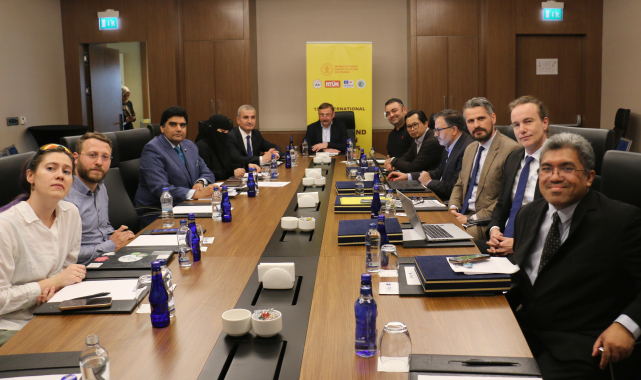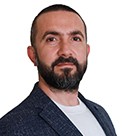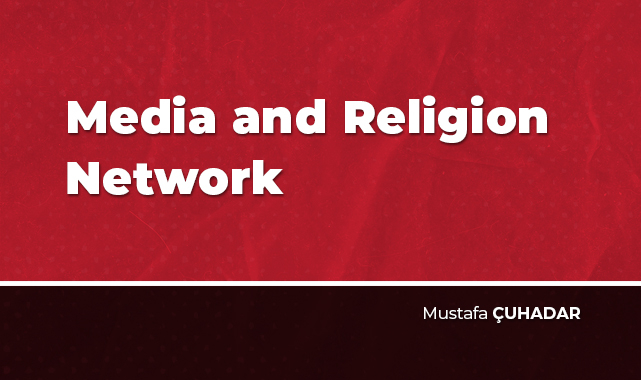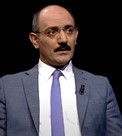In Turkey, it is no longer possible to consider the media and religion as separate domains. Various aspects of the relationship between media and religion, directly linked to everyday life practices, are occasionally discussed in popular magazines and radio-television programs, and increasingly gaining momentum in academic platforms day by day. Undoubtedly, one of the primary factors driving this emerging trend is the initiatives related to media and religion hosted by Erciyes University. Medya ve Din Araştırmaları Merkezi (The Center for Media and Religion Studies), established in 2017 through legal regulations, Medya ve Din Araştırmaları Dergisi (Journal of Media and Religion Studies) which began its publication in 2018, the “1st International Media and Islamophobia Symposium” held in 2021, and subsequently, the Media and Islamophobia Forum held annually since then, serve as significant cornerstones. Until now, we have observed Erciyes University taking the lead in the teaching of “Media and Religion” courses in communication faculties and in forums organized at national and international levels. Moreover, we witnessed the transition of studies to the international level through collaboration with reputable institutions and academics, indicating the emergence of a new trend in Turkey, as seen in the "1st International Media, Digital Culture, and Religion" Congress held in Kayseri a few days ago.
During the first day of the congress, held on April 26-27, 2024, under the coordination of Prof. Dr. Hakan Aydın and Assoc. Prof. Dr. Metin Eken, discussions lasting for hours revolved around the interactions between communication technologies and religion. Guests from different countries shared their experiences and expertise, delving into the relationship between media and Islamophobia, as well as digital culture and religion. In this regard, the congress served as a platform where the relationship between media and religion in our country was discussed from various perspectives and on a global scale.

During the first two sessions, the stance of the media on human rights issues was discussed within the context of Islamophobia. Prof. Dr. Noura Zaid Al-Rashoud and Dr. Hacı Ali Açıkgül from the Organization of Islamic Cooperation, Prof. Dr. Jörg Matthes from the University of Vienna, Noureddin Miladi from Sultan Qaboos University, and Şener Bilali from the International Balkan University shared their significant findings. Evaluations clearly illustrating how Palestine, especially Gaza, is represented in Western media stood out as prominent topics in the initial sessions.
In the third and final session, which took place face-to-face, the focus shifted to the relationship between digital culture and religion. Prof. Dr. Shukran Abdul Rahman from the International Islamic University Malaysia discussed the impact of digital culture on mental health and how digital content themed around religion and values influences this impact. Prof. Dr. Moch Fakhruroji's presentation delved into the emergence of popular digital preachers in Indonesia as new forms of religious authority. Dr. Sofya Ragozina provided a descriptive analysis of the social media usage practices among Muslims in Russia.
On the second day of the congress, 16 online sessions were conducted, featuring participants from 11 countries and presenting 63 papers that covered a wide range of topics from religious media outlets to artificial intelligence.
When the relationship between media and religion is considered within the framework of only one discipline, it often leads to results lacking in depth. However, the observations and analyses of academics from different disciplines such as theology, sociology, psychology, communication, and international relations enrich the outcomes. Furthermore, institutional collaborations – where both international and local actors made significant contributions in this congress – enhance the quality of the studies. Additionally, the studies on media and religion by academics from outside of Turkey highlight the global nature of the issue and the necessity for further collaboration.
In this regard, I believe that the 1st International Media, Digital Culture, and Religion congress formed a “media and religion network”. Professor Hakan Aydın stated that this congress will continue in the following years, aiming to continue with both face-to-face and online sessions. Hopefully, this network will grow stronger over time.









